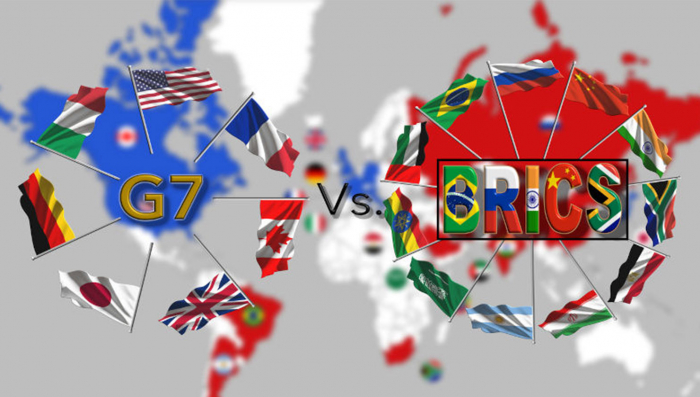The Emerging Pillars of a New World Order: A Global Shift in Progress
As the landscape of global politics and economics evolves, a new world order is gradually taking shape. Historically dominated by Western powers, the current international system is being supplemented by emerging institutions and initiatives that promise to reshape global dynamics. This shift, however, is a prolonged process that demands both strategic patience and sustained development efforts.
Security and Political Realignments
In the realm of security, the Shanghai Cooperation Organization (SCO) has emerged as a significant player. Formed in 2001, the SCO includes Russia, China, and several Central Asian nations. This organization aims to enhance regional security, economic cooperation, and cultural exchanges, positioning itself as a counterbalance to Western-dominated security frameworks like NATO.
Politically, the BRICS cooperation mechanism (comprising Brazil, Russia, India, China, and South Africa) has gained prominence. Since its inception in 2009, BRICS has focused on enhancing multilateral cooperation, creating a platform for dialogue, and advocating for the interests of emerging economies on the global stage.
Economic Transformation
On the economic front, institutions like the Asian Infrastructure Investment Bank (AIIB) are taking shape to provide much-needed infrastructure funding. Launched in 2016 and headquartered in Beijing, the AIIB aims to foster sustainable economic development by investing in infrastructure projects across Asia and beyond.
Initiatives such as the Belt and Road Initiative (BRI), the Eurasian Economic Union (EAEU), and the Regional Comprehensive Economic Partnership (RCEP) further contribute to the emerging multipolar world. The BRI, proposed by China in 2013, focuses on building infrastructure and increasing trade along the historic Silk Road routes. The EAEU, established in 2015, promotes economic integration among Armenia, Belarus, Kazakhstan, Kyrgyzstan, and Russia. Meanwhile, RCEP, which came into effect in 2020, is the world’s largest free-trade agreement, encompassing 15 Asia-Pacific countries.
Economic Rebalancing
The economic balance between the Group of Seven (G7) and BRICS countries has experienced a significant shift over the past few decades. Thirty years ago, BRICS economies collectively accounted for only one-third of the G7’s economic output. Today, they have surpassed the G7 in terms of purchasing power parity, signalling a considerable transformation in global economic development.
However, it is essential for BRICS nations to approach their newfound status with humility and caution. Despite their progress, the G7 maintains a strong foundation and will likely continue policies aimed at containing the rise of emerging economies. For BRICS countries to solidify their position on the global stage, they must focus on sustainable, long-term development.
Challenges and Path Forward
Emerging economies face substantial challenges, including insufficient domestic economic growth momentum and risks of economic spillover from developed countries. In the short term, these nations must prioritize supply-side reforms, rapid economic recovery, and the advancement of economic globalization through international multilateral cooperation.
Achieving medium to high-speed growth is crucial for the sustainable development of these economies. By fostering integrated mechanisms and promoting collaborative initiatives, emerging economies can contribute meaningfully to the establishment of a truly multipolar world.
Conclusion
While the pillars supporting a new world order are forming, the journey towards a multipolar world is far from complete. The development of integrated mechanisms and sustainable growth in emerging economies are essential for realizing this vision. The global community must recognize that this transformation requires time, strategic planning, and cooperative efforts to build a more balanced and equitable international system.
For more information, visit the Chongyang Institute for Financial Studies at Renmin University of China.
